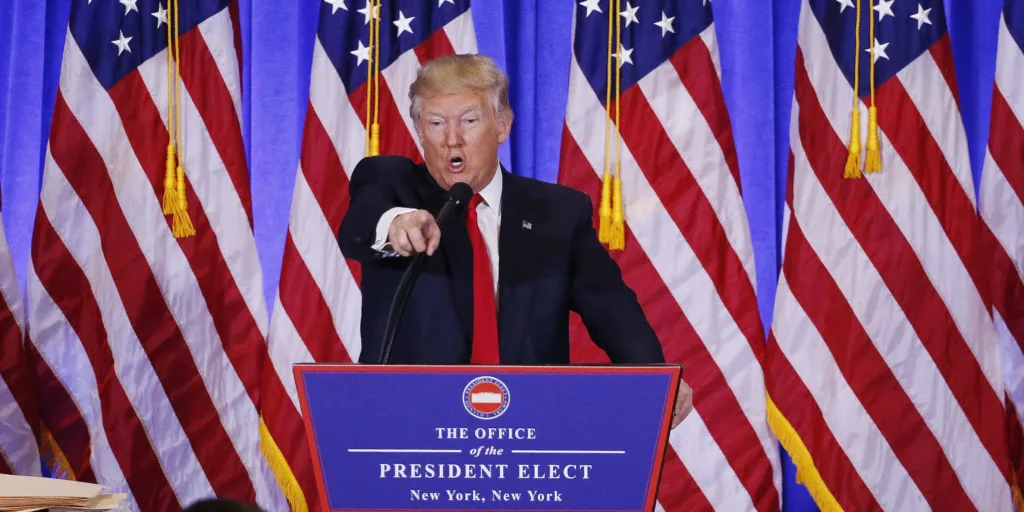
The US intelligence community has long been a model to the world. Designed to provide trustworthy, competent, and independent support for the nation’s leaders with unbiased information, this delicate ecosystem is now threatened by President Donald Trump, who uses his position to undermine a system based on truth, verification, and science.
Drawing on his expectations of the media, respect for facts, and fighting the common struggle against truth and reason, Trump’s style values loyalty over truth, summary over nuance, and instinct over reason. As a result, the political landscape is increasingly inserting itself into realism, undermining the intelligence community’s autonomy and integrity and driving it to unprecedented treachery to deny the inevitable, serious risks the US over global crises and severe dangers the US will be unable to handle to mitigate major threats.
Politicized Intelligence Mirrors Authoritarian Patterns
Authoritarian regimes often suffer intelligence failures because leaders reject facts that challenge their views. Trump appears to be adopting this same pattern. During a recent escalation with Iran, Director of National Intelligence Tulsi Gabbard testified that Tehran was not close to building a nuclear bomb. Trump dismissed her analysis outright, saying, “I don’t care what she says.”
This response was more than political theater; it showed a dangerous disregard for the facts. Soon after, Trump claimed the bombing campaign had “obliterated” Iranian facilities, even though intelligence assessments suggested otherwise. When leaders demand only affirming information, agencies begin to reshape facts to meet expectations. That is how failures begin.
Loyalty Over Expertise Weakens National Security
A growing number of intelligence roles are being filled by political loyalists rather than qualified professionals. Critical counterterrorism departments are now led by individuals with no national security experience. One example includes a major Department of Homeland Security post assigned to a recent college graduate.
This shift isn’t just symbolic. It moves focus away from real threats like cyberattacks or foreign espionage and redirects it to politically charged tasks. One such misallocation was the intelligence gathering in Greenland, ordered not for national defense, but to support Trump’s idea of annexation. These actions expose the U.S. intelligence community to dangerous blind spots.
The Culture of Fear and Self-Censorship
The fear of retribution is changing how intelligence is delivered. Analysts are beginning to self-censor, avoiding insights that might upset the administration. When facts are unwelcome, analysts become silent. History has shown that groupthink and suppressed dissent are major ingredients in intelligence disasters.
In one case, the acting leaders of the National Intelligence Council were fired after their assessment contradicted Trump’s narrative about a Venezuelan criminal group. This move sent a chilling message: independent analysis may cost you your job.
Eroding Trust at Home and Abroad
Trust is vital to intelligence. When leaders manipulate facts or purge experts, they damage credibility, not just with the public, but with allies. During the Iraq War, U.S. intelligence lost international standing due to politically driven reports. That same erosion is happening now.
Allies may withhold sensitive data if they suspect the U.S. will misuse it or distort findings. This limits the intelligence community’s reach and reduces its ability to detect threats in time.
Brain Drain and Talent Loss in Intelligence Agencies
The politicization is also driving talent out of the intelligence community. Mass layoffs, canceled job offers, and forced resignations have left agencies understaffed and demoralized. Career professionals with decades of experience are leaving, and recruits are reluctant to join.
Diversity has also been hit hard. Officers involved in diversity, equity, and inclusion work were fired outright instead of reassigned. This signals that only ideologically aligned voices are welcome—an echo of authoritarian intelligence systems that crushed dissent and failed to deliver accurate analysis.
A Fragile System Pushed to the Edge
The current trajectory of the U.S. intelligence community is deeply concerning. As facts are replaced by political convenience, the nation becomes more vulnerable. Intelligence exists to challenge leaders, not comfort them. If Trump continues to prioritize loyalty and ideology over truth, the risk of catastrophic failure will grow.
The strength of the U.S. intelligence community lies in its independence. Undermining that independence for short-term political gain could carry long-term consequences for the country’s safety.







